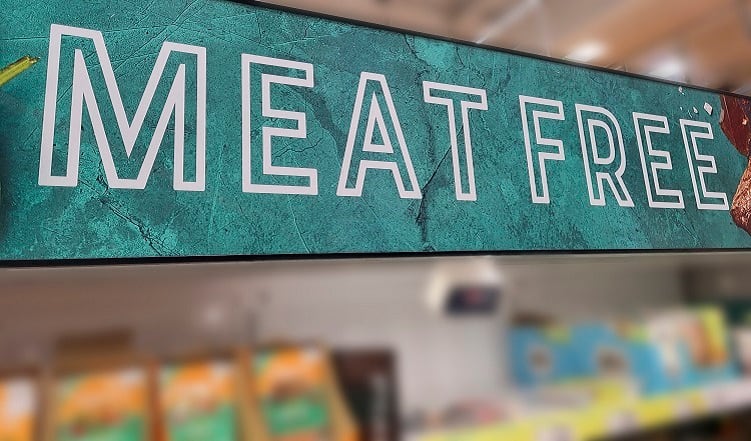French cultivated meat start-up Vital Meat earlier this year sought regulatory approval in Singapore. Now it’s going closer to home – the UK.
Vital Meat, launched in 2018 by co-founders Frederick Grimaud and Etienne Duthoit, produces cultivated chicken by extracting cells from a fertilised chicken, which are then fed into a growth media in a bioreactor, where they multiply. The biomass is then harvested to create the final product. FoodNavigator tried the product in 2021 when we visited Paris. We said it definitely had a roast chicken flavour.
As a B2B ingredient, it is intended not to be eaten alone but to be added to plant-based meat in order to provide flavour.
The UK, previously a member of the EU and retaining some of its laws, is a fundamentally different place to apply for regulatory approval to Singapore. However, according to Vital Meat, there are some key similarities.
What are the main barriers of achieving regulatory approval in the UK?
Attaining regulatory approval for a novel food such as cultivated chicken is not easy anywhere. In the UK, there are many challenges.
“Many aspects require robust scientific evidence and comprehensive documentation to meet the stringent requirements set by the UK's Food Standards Agency (FSA),” Vital Foods CEO and co-founder Etienne Duthoit told FoodNavigator.
“Those key aspects are: 1) the safety and stability of cell lines, 2) the validation of human health safety (including allergens and media composition), 3) the adherence to quality standards for the whole process (upstream and DSP), and 4) the consistency of the production process and of the end product.”

The barriers are ‘the same as in the EU,’ added Katia Merten-Lentz, partner at the law firm Food Law Science and Partners, who is working on Vital Meat’s approval.
For example, costly studies are needed, such as toxicological studies and whole genome sequencing. The length and time to perform these studies, as well as time for risk management, is a significant barrier.
How does the UK’s application process differ from Singapore’s?
According to Duthoit, applying for regulatory approval in the UK is fairly similar to applying in Singapore. The main difference, he told us, is that while Singapore has a 12-month assessment time, the UK has double that.
First UK cultivated meat submission for approval
The first company to submit approval for cultivated meat in the UK was Israeli start-up Aleph Farms.
Singapore is quite flexible, according to Merten-Lentz, about the structure of the dossier submitted for approval. “There is no defined structure for a dossier, Singapore accepts the European Food Standards Agency (EFSA) or the Generally Recognised As Safe (GRAS, the US system) structure for example. The content of a dossier is essentially the same as in the EU.”
Furthermore, she told us, the Singapore Food Agency (SFA) has issued a document with the Requirements for the Safety Assessment of Novel Foods and Novel Food Ingredients, “which notably includes information on the safety assessment criteria for specific foods, such as those obtained by precision fermentation.
“SFA offers the possibility of organizing several consultations with the applicant during the preparation of the studies and authorization dossier.” The regulatory decision is made by the SFA director.
How does the UK’s application process differ from the EU’s?
While considering applying for approval in the EU, Vital Meat eventually decided to apply in the UK instead.
“The UK appeared to be a good choice for us for the following reasons: British consumers' pragmatism and environmental consciousness align well with the sustainability benefits of cultivated meat. Their receptiveness to innovation and health awareness further create a favourable environment,” Vital Meat’s Duthoit told us.
“Also, since we have a B2B approach, we listen to our clients as to where they want to launch. Asia, through the influence of Singapore, is a top priority for them.”
Since Brexit, according to Food Law Science and Partners’ Merten-Lentz, the laws around novel food regulations in the UK have not changed, and are thus very similar to those of the EU.
Regulation (EU) 2015/2283
This is the regulation which defines the parameters which novel foods must work within in order to be approved, aiming predominantly towards the safety of European consumers. A novel food must not pose a risk to human health, mislead consumers, or be nutritionally disadvantageous compared with the food it is replacing.
“UK retains all the application requirements set in the EU regulations and EFSA guidance published before the entry into force of Brexit and the principle of the register of novel foods (including novel foods ‘pre-1 January 2021’ of the Union list),” she told us. Thus, there is ‘no big difference’ between the two markets.
“The placing on the market must be in accordance with the assimilated Regulation (EU) 2015/2283 on novel foods and involves both a risk assessment and a risk management. In terms of structure and content of the application dossier, the EFSA guidance on the preparation and presentation for authorisation dossier of a novel food must be followed.”
There are a few differences, however. For example, the Food Additives Intake Model (FAIM) tool that the EFSA uses, which is used to estimate consumer exposure to the novel food in question, cannot be used in the UK. Instead, the reference must be to the National Diet and Nutrition Surveys.
Furthermore, the UK’s FSA, along with Food Standards Scotland (FSS), may consider application dossiers submitted with three homogenous replicates of the novel food ingredient batches, instead of the five required by the EFSA.
Nevertheless, there are key difficulties when applying for approval in the UK market. “The UK requirements are as strict as in the EU and the assessment process as long as in the EU whilst the population and thus the market is smaller. Singapore and Israel are still smaller market but seems to be more open to food innovation. US is faster,” Merten-Lentz concluded.




